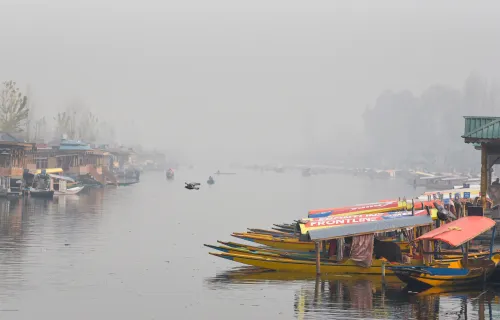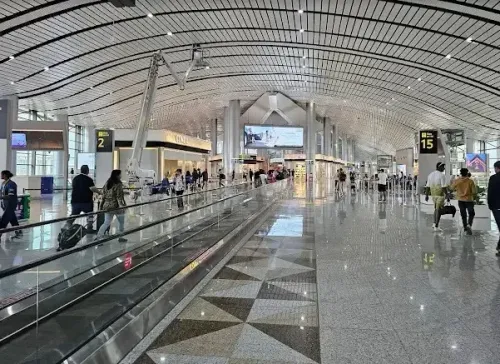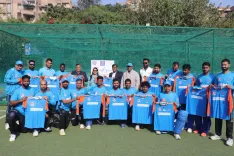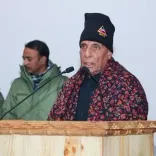Is India's Global Outreach an Experiment to Divert Attention?
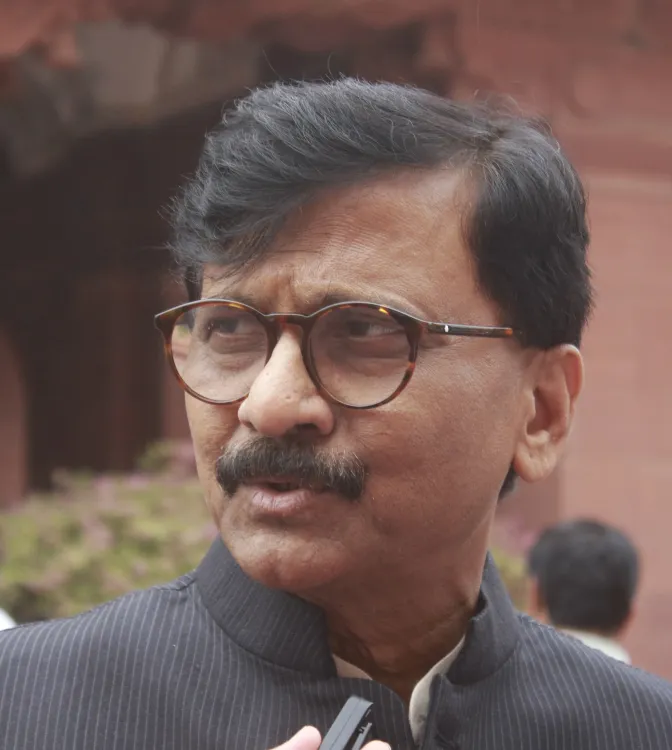
Synopsis
Key Takeaways
- India's diplomatic outreach is viewed as a diversion by some political leaders.
- Sanjay Raut calls for focused engagement with neighboring countries.
- The all-party delegation's effectiveness is questioned.
- Criticism of the Modi government’s foreign policy is prevalent.
- Political dynamics are influencing perceptions of national security.
New Delhi, May 21 (NationPress) Shiv Sena (UBT) leader Sanjay Raut on Wednesday characterized India’s diplomatic outreach to the global community as an ‘experiment’ and a ‘diversionary tactic’ employed by the Centre to shift focus away from pressing issues, particularly the Pahalgam incident that resulted in the deaths of 25 tourists and one local civilian.
Raut's controversial remarks come at a time when the nation is united in its fight against terrorism and are likely to trigger significant political controversy.
Sanjay Raut informed IANS that the all-party delegation visiting 33 nations globally would not produce any meaningful outcomes due to its lack of ‘focus and purpose’.
Criticizing the Centre, he asserted that the government continually engages in such experiments to deflect attention from critical issues.
He challenged the all-party delegation's mission to African and European nations, questioning their effectiveness in addressing the strained relations between India and Pakistan and their ability to press Pakistan regarding its support of terrorism.
“The delegation ought to consider visiting neighboring countries like Sri Lanka, Bangladesh, and even China, which have considerable influence in the region and whose opinions will be vital in fostering peace in the subcontinent,” he remarked.
Sanjay Raut further suggested that an Indian diplomatic outreach team should engage with adversarial nations like China and Turkey to expose Pakistan’s support for terrorism and encourage these nations to sever ties with it.
Notably, India has launched a global diplomatic initiative against Pakistan following Operation Sindoor, which includes seven teams of over 50 parliamentarians, seasoned diplomats, and experts visiting more than 30 countries to present evidence of Pakistan’s direct involvement in the horrific terror attack in Pahalgam on April 22.
The Shiv Sena (UBT) leader also criticized the Centre for its 'handpicking' of lawmakers from other parties for its global outreach program, questioning, “Who are they to select representatives from other parties?”
He supported the TMC leader's decision to replace newcomer MP Yousuf Pathan with seasoned politician Abhishek Banerjee as the party’s representative in the all-party delegation.
Discussing his party’s decision to boycott India’s global outreach against terrorism, he stated that the party agreed to engage in the ‘national interest’, with party MP Priyanka Chaturvedi joining the team after Parliamentary Affairs Minister Kiren Rijiju adhered to protocol and contacted party chief Uddhav Thackeray.
Despite this, the SS (UBT) MP was relentless in his criticism of the Modi government, holding it accountable for India’s ‘failed’ foreign policy.
“If the Prime Minister and his ministers are unable to create a global perception for a nation like Pakistan that is already perceived as failing, what can the MPs realistically achieve in just 10-15 days?” he questioned.
Earlier, prominent Congress leader Jairam Ramesh echoed similar sentiments, labeling India’s global outreach against Pakistan as yet another strategy to divert attention from pressing domestic issues.




